Enhancing critical thinking Normal Math Worksheets for Ages 4-8
6 filtered results
-
From - To
Enhance your child's critical thinking skills with our engaging Normal Math Worksheets designed for ages 4-8! These thoughtfully crafted worksheets help young learners develop problem-solving abilities in a fun and interactive way. Featuring a variety of exercises, kids will explore math concepts through puzzles, real-life scenarios, and visual aids that stimulate cognitive development. Each worksheet is designed to not only boost mathematical understanding but also encourage creativity and logical reasoning. Perfect for parents and educators, these resources make learning an enjoyable adventure, setting a strong foundation for future academic success. Unlock your child's potential with our critical thinking math worksheets today!
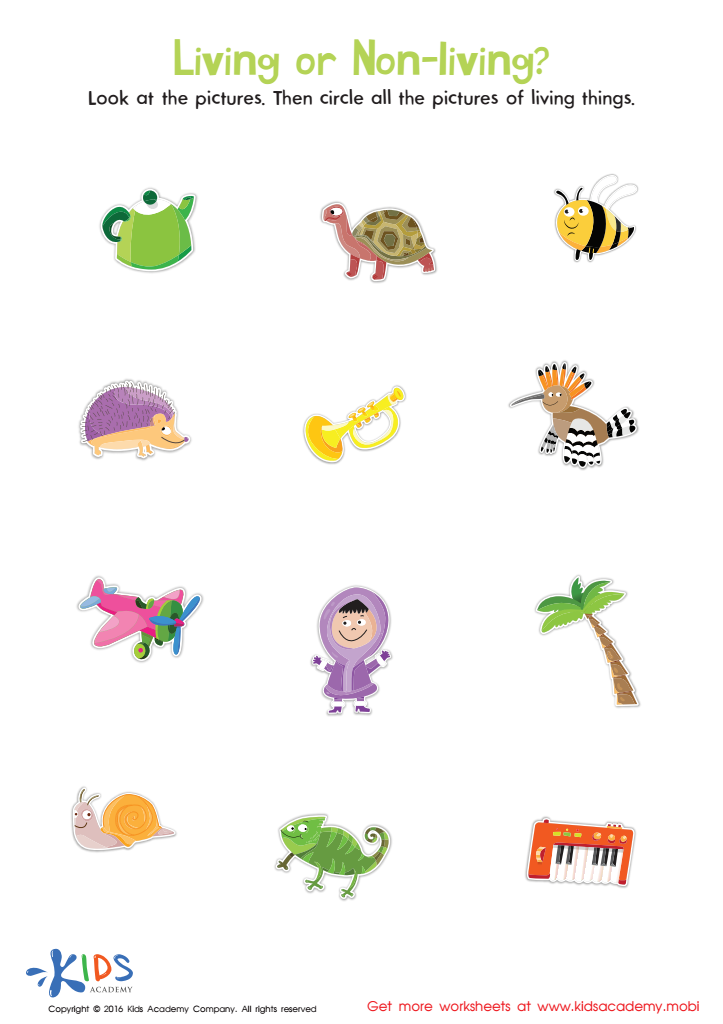

Identifying Living and Non–living Things Sorting Worksheet
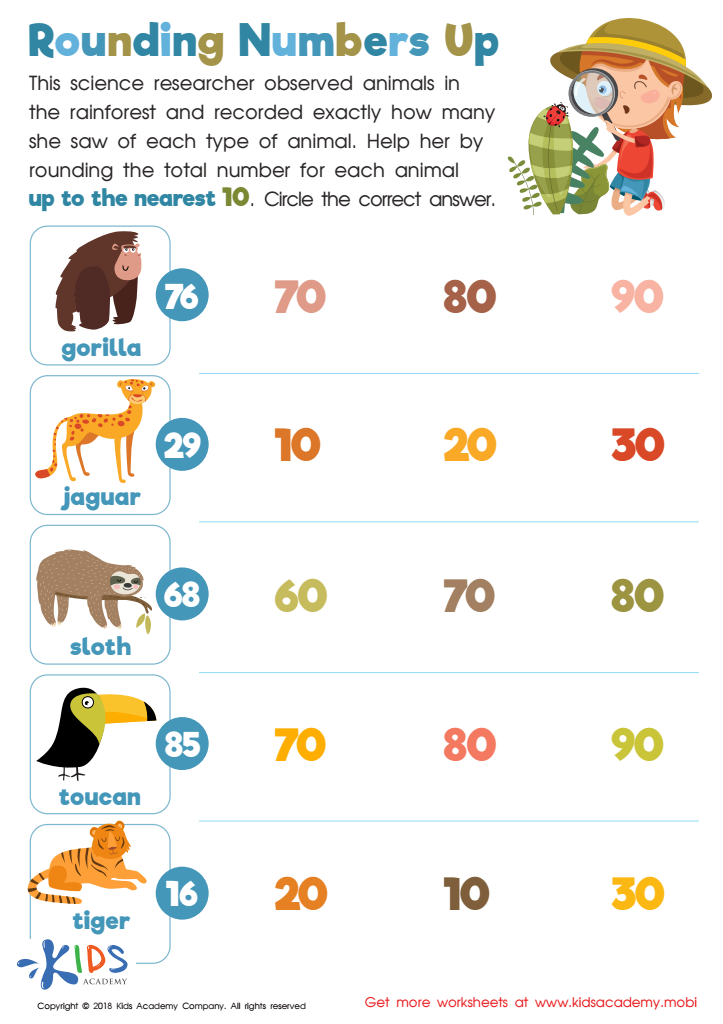

Rounding Numbers Up Worksheet
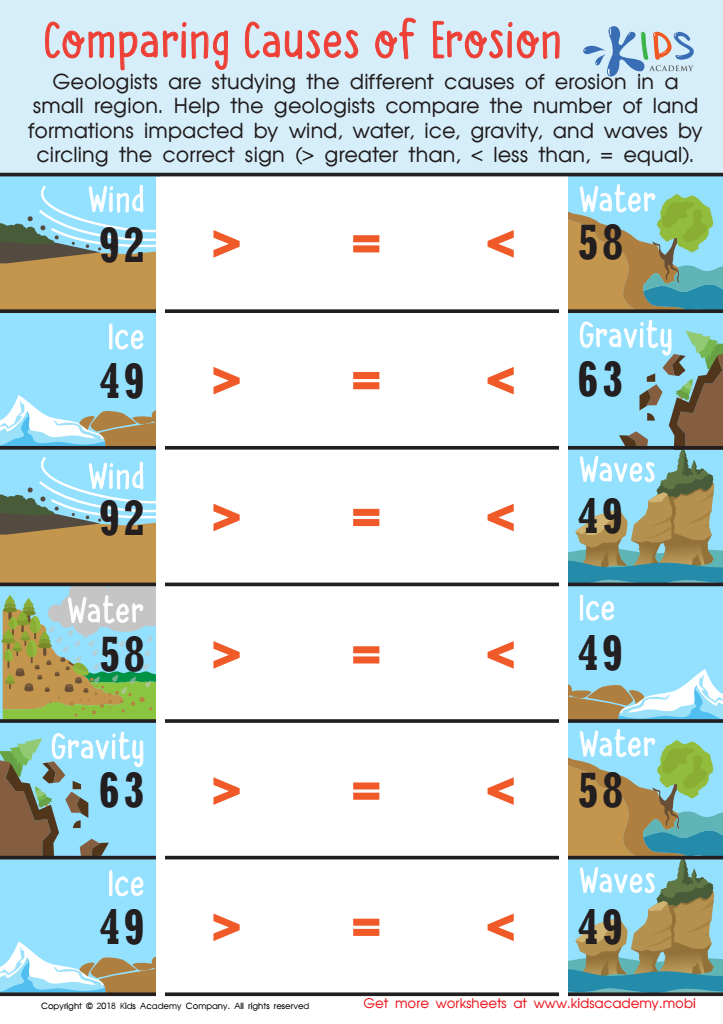

Comparing Causes of Erosion Worksheet
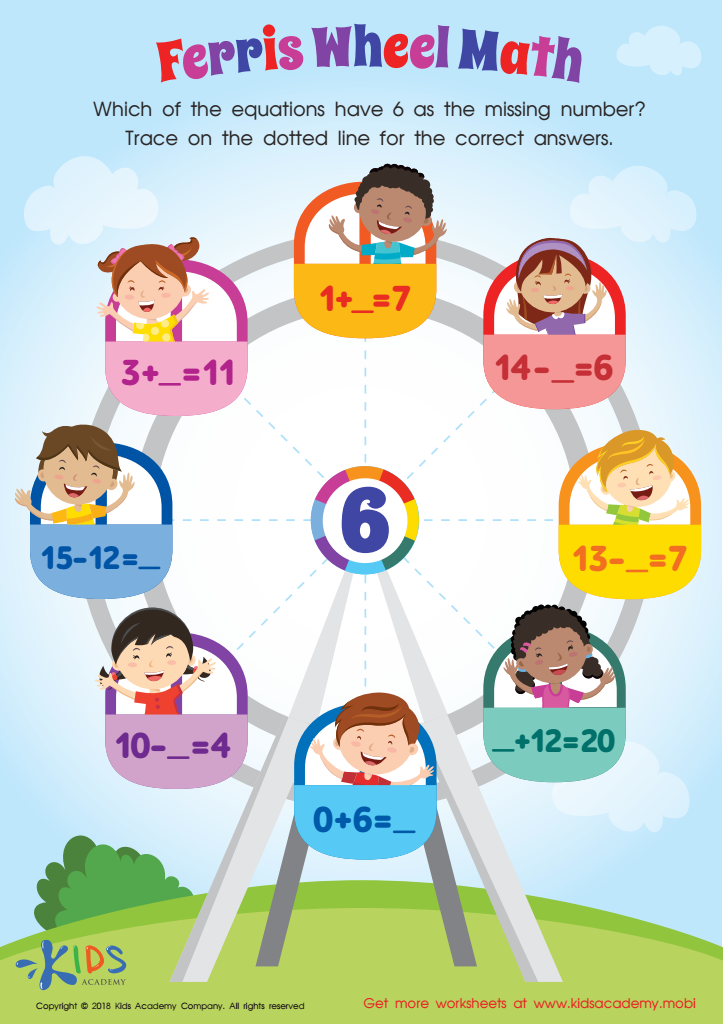

Missing Number: Ferris Wheel Math Worksheet
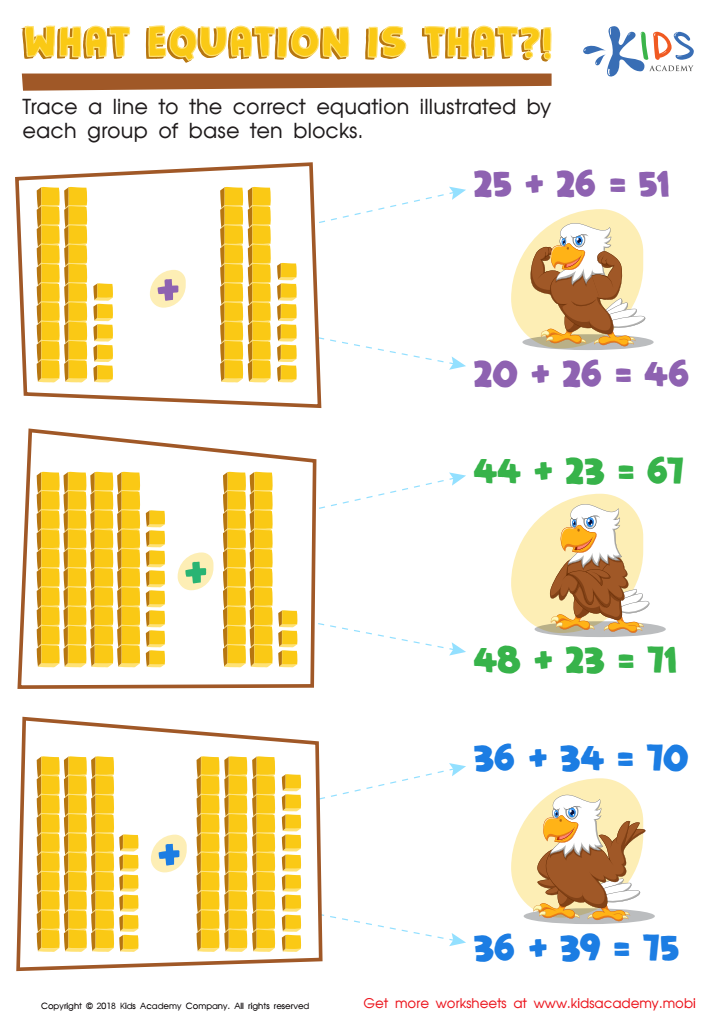

What Equation Is That? Worksheet
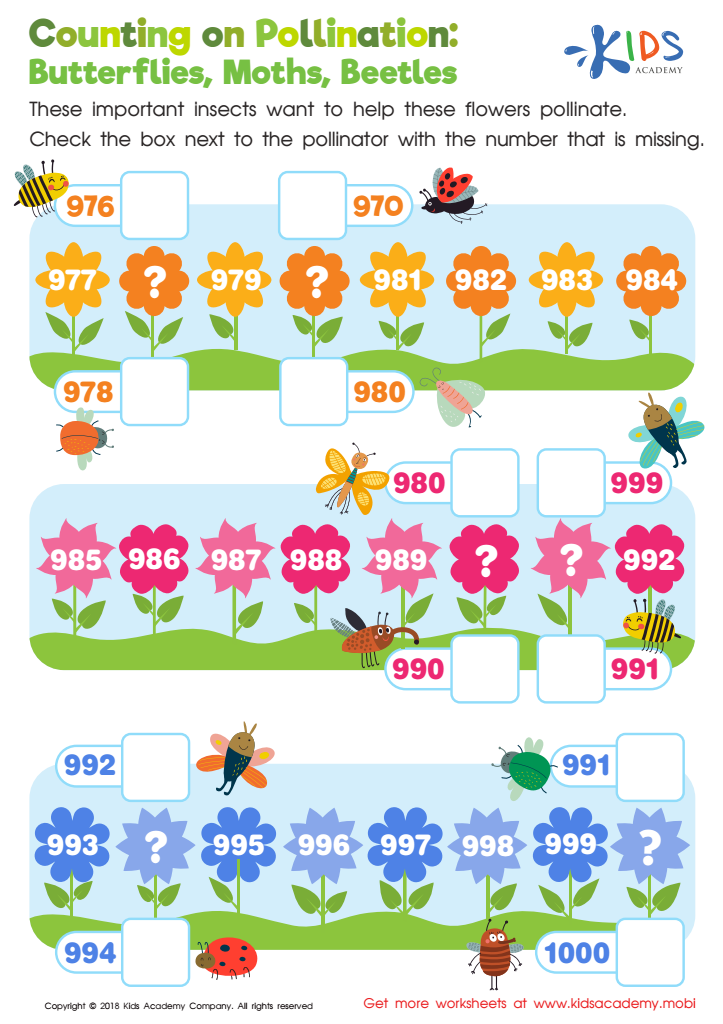

Counting on Pollination: Butterflies, Moths, Beetles Worksheet
Enhancing critical thinking through Normal Math for children aged 4-8 is vital for their overall cognitive development and life skills. At this early stage, children's brains are exceptionally adaptable, making it the perfect time to foster critical thinking skills. By engaging in Normal Math activities, children learn to problem-solve, analyze situations, and develop logical reasoning. This not only applies to mathematical concepts but also promotes a broader understanding of the world around them.
Parents and teachers should also recognize that critical thinking is foundational for future learning across all subjects. Encouraging children to explore mathematical ideas helps them ask questions, think creatively, and persevere through challenges. It builds resilience, allowing them to tackle difficult problems effectively.
Moreover, children who practice critical thinking in math are often better equipped to handle real-life situations and make informed decisions. This skill set has lasting benefits that extend beyond the classroom, preparing them for complex tasks in higher education and their future careers.
Ultimately, investing time in enhancing critical thinking through Normal Math enriches a child’s educational experience, fostering a love for learning and equipping them with the necessary tools for success in an increasingly complex world.
 Assign to My Students
Assign to My Students

















